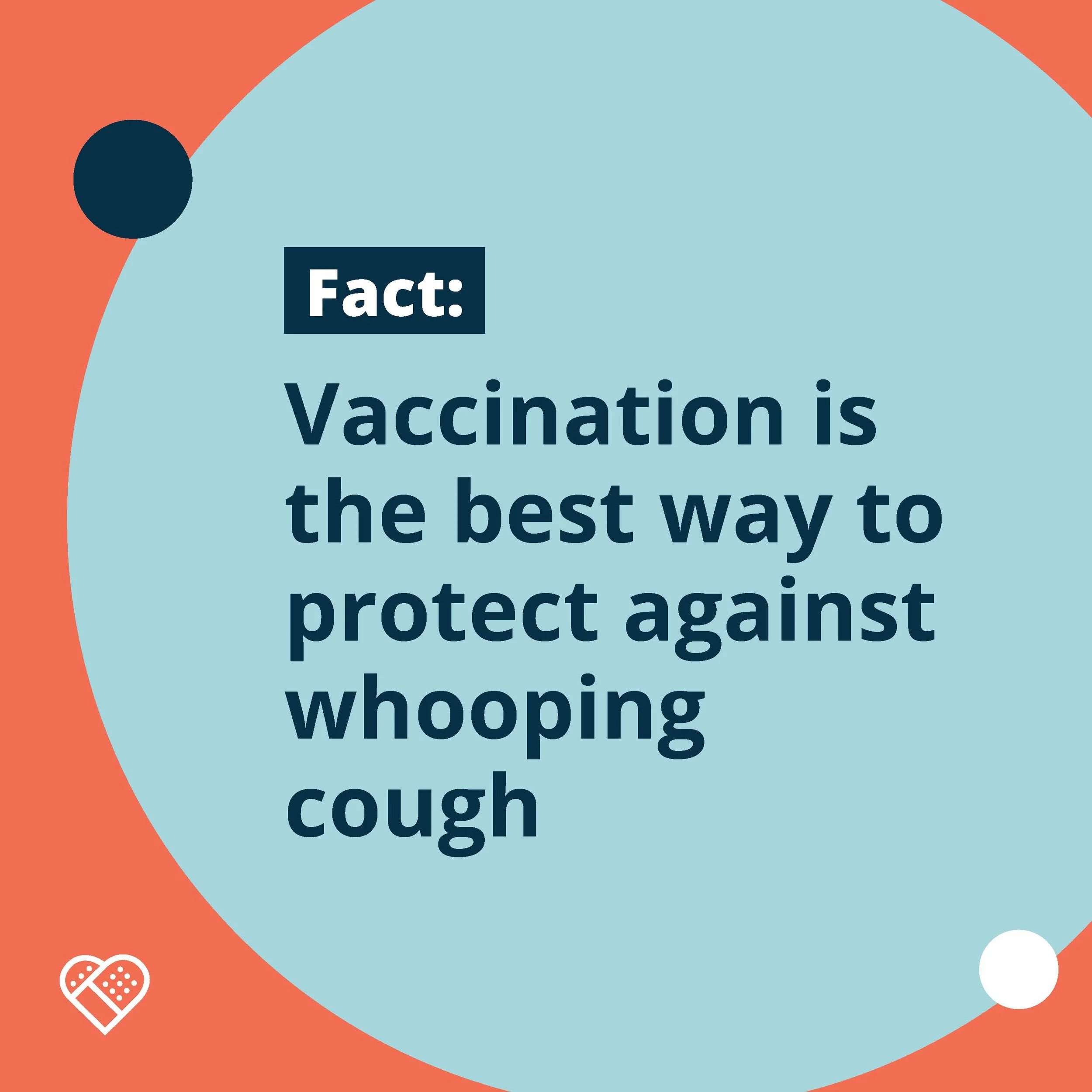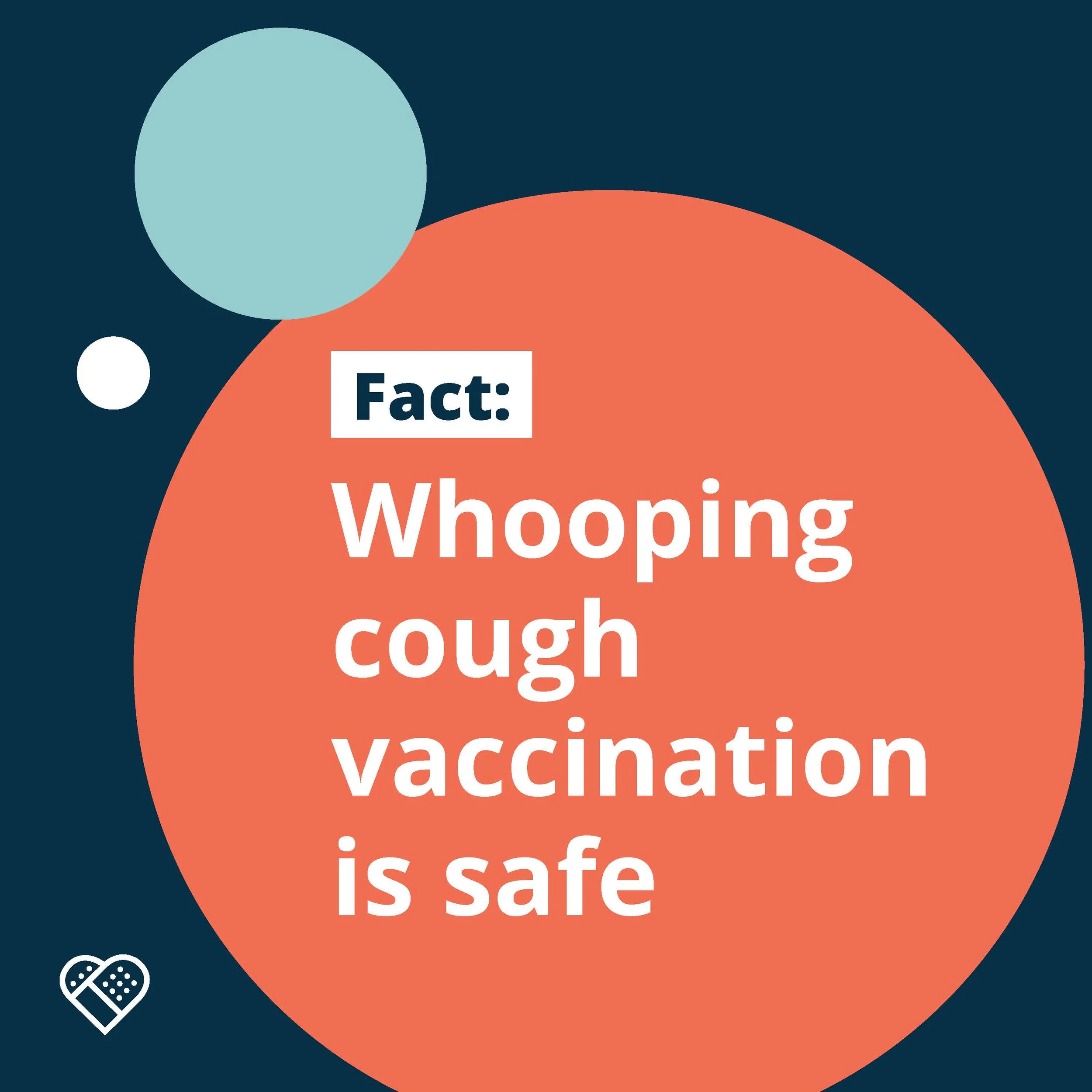One day, around ten years ago, my Mum contracted whooping cough when she was visiting a childcare centre for work. Concerned about how sick she was feeling, she saw a doctor who reassured her that it was just a cold. She continued to cough and cough, so a month later returned to the GP who tested her.
Read MoreKnown medically as pertussis, whooping cough is a highly infectious and potentially fatal bacterial infection that attacks the airways, causing uncontrollable coughing and difficulty breathing.
Often referred to as the ‘100-day cough,’ whooping cough can cause rapid, violent, and uncontrolled coughing fits until all air is gone from the lungs. These coughing fits can last for months and can be so severe that they cause vomiting, incontinence, broken ribs and hospitalisation.
Read MoreAustralia is in the grip of a whooping cough epidemic, the first since the last nationwide outbreak which peaked in 2015. Epidemics of whooping cough occur in cycles and may persist for several years.
Other parts of the world are also experiencing outbreaks of whooping cough, including the United Kingdom where eight infant deaths caused by whooping cough were recorded between January and May 2024.
Read MoreWhooping cough is more contagious than influenza, measles or COVID-191 and, once infected, a person can remain contagious for three weeks or until they receive a course of antibiotics.
Symptoms of whopping cough don’t appear immediately (often for a week or more following infections), so an infected person may unwittingly spread whooping cough to up to 17 unvaccinated people.
Read MoreWhooping cough can be fatal in infants and can cause serious illness in older children and adults.
In Australia this year, a quarter of confirmed cases of whooping cough are in adults. Pre-teens and young teenagers are also at risk, with 40 per cent of confirmed cases of whooping cough occurring in 10-14-year-olds.
Read MoreWhile whooping cough is most serious in infants, some older children and adults are at a higher risk of severe illness. People with asthma face a four times greater risk of whooping cough infection and have a higher risk of being hospitalised.
Read MoreWhooping cough vaccination offers the best defence against this highly contagious disease for the person vaccinated and their loved ones.
Babies are at greatest risk of severe whooping cough and immunisation of pregnant women offers the baby protection until it can receive its own vaccine schedule from six weeks of age.
The best way for older children and adults to protect themselves and loved ones from whooping cough is to remain protected with booster vaccines.
Vaccinations for whooping cough have been used for more than 100 years, with billions of doses administered globally. Last year alone, more than 110 million infants were vaccinated against whooping cough worldwide.
Side effects are closely monitored, and ongoing research shows that currently available whooping cough vaccines are very safe across broad populations. In fact, recent research involving more than 40,000 pregnant women found only mild side effects such as pain or redness at the injection site.
Read MoreHaving whooping cough does not leave you immune and while vaccination is the best defence against the bacteria, protection does wane over time. A whooping cough booster at least every 10 years is a safe and effective way to bolster protection.
In Australia, the whooping cough booster comes as a combination vaccine that also protects against diphtheria and tetanus, both of which also require boosters at least every 10 years to remain effective.
Read MoreWhile vaccination is especially important for babies, pregnant women and people who are in contact with infants, we all have a role to play in controlling the spread of whooping cough and reducing the risk of infection.
The risks posed by whooping cough are compounded by a reduction in the number of Australians receiving booster vaccination. More than 13 per cent of Australian adolescents are skipping their free school-based whooping cough booster, a figure which has increased since 2021.
Booster uptake in adults is even lower. Most adults cannot recall having received a whooping cough booster, with only one-in-five Australian adults aged over 50 years up-to-date with whooping cough vaccination.
Australians can check their vaccination status by talking to a doctor, pharmacist or by accessing their Immunisation History Statement via the Express Plus Medicare app.
Read MoreJoin parents worldwide in the fight against meningitis. Learn, advocate, and protect our children from this silent threat.
Read MoreMabel had a great day exploring her new swing at her Brisbane home. She was six months old and Mum, Carly, had ensured Mabel was up to date with all recommended vaccinations. Later that night she vomited several times. In the morning Carly took her to the Queensland Children’s Hospital. After another unsettled night, tests confirmed, Mabel had pneumococcal meningitis.
Pneumococcal is a vaccine preventable disease.
Read MoreOur guest Professor Julia Brotherton speaks to us about human papillomavirus and tells us who is at risk and what are the longer-term consequences of infection in men and women.
Read MoreIn this episode we hear the painful truth about Shingles, a condition that can last for a few weeks, but for some, symptoms can linger for years.
Read MoreIn the episode we meet Dr Rod Pearce and ask, what is the NIP, what vaccines are on listed, how do they get there and who’s ‘eligible’?
Read MoreThese two bacterial diseases are among the most dangerous in the world. That’s why our guest, Professor Robert Booy, has spent his career teaching us about meningococcal and pneumococcal. What are they, where do they come from and how can we protect ourselves and all our loved ones against them?
Read MoreIn this podcast episode of Matter of Vax, Professor Christopher Blyth joins host Stephanie O'Connell to discuss influenza and its impact on public health. He highlights the significant decrease in influenza cases and deaths during the COVID-19 pandemic due to preventive measures such as vaccinations, travel restrictions, quarantine, hand hygiene, and mask-wearing.
Read MoreIn this podcast episode of Matter of Vax, Professor Christopher Blyth joins host Stephanie O'Connell to discuss influenza and its impact on public health. He highlights the significant decrease in influenza cases and deaths during the COVID-19 pandemic due to preventive measures such as vaccinations, travel restrictions, quarantine, hand hygiene, and mask-wearing.
Read MoreIn April 2023, 68-year-old Margaret McMahon started to feel a little unwell but brushed it off to simply being rundown.
Read More



















